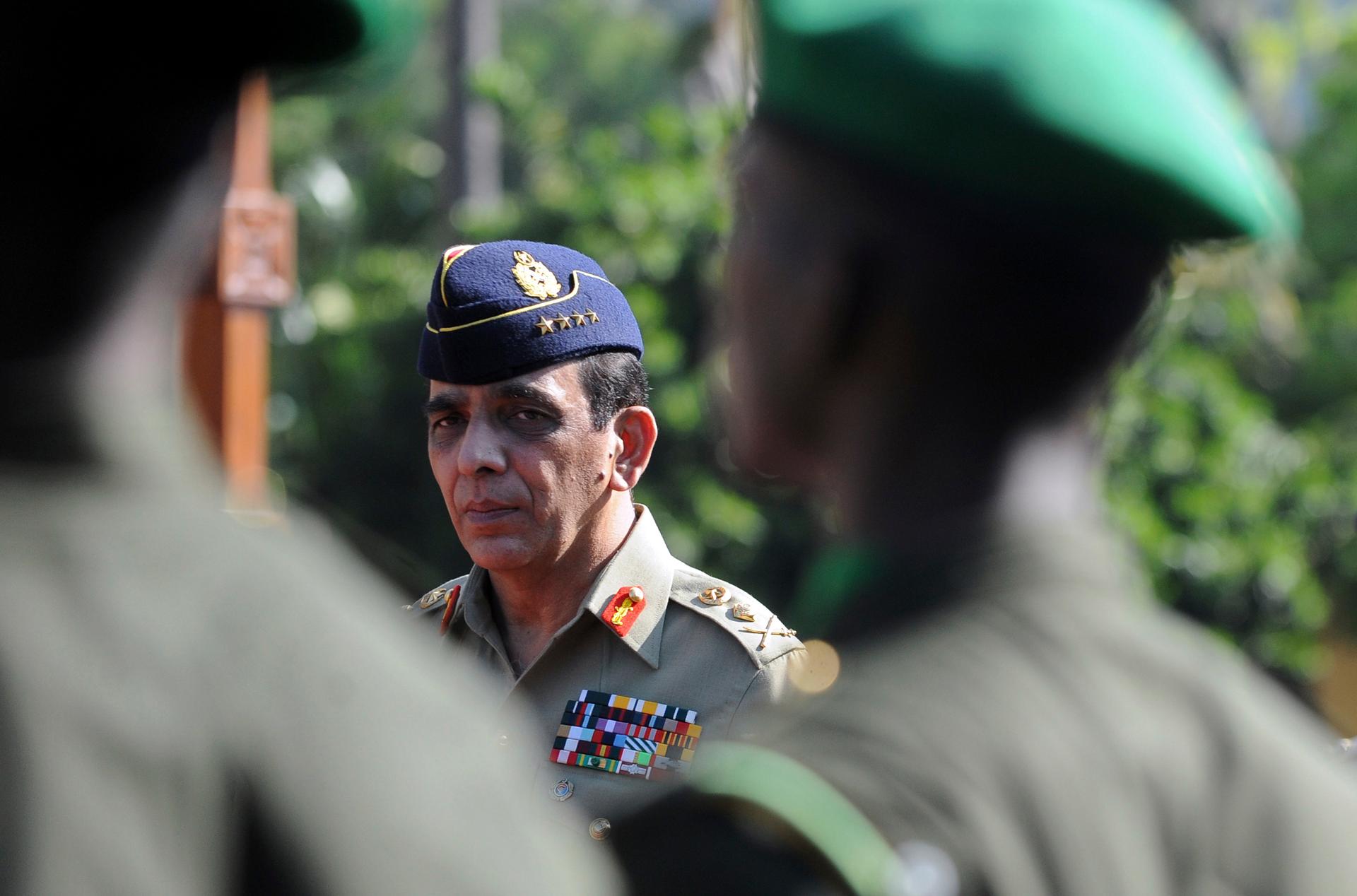Ashfaq Parvez Kayani, Pakistan’s top general, warns civilian leaders against overstepping authority
Visiting Pakistani Army Chief General Ashfaq Parvez Kayani walks past a guard of honour at the Sri Lankan Army headquarters in the capital Colombo on January 20, 2011.
KARACHI, Pakistan — Ashfaq Parvez Kayani, Pakistan's top general, has issued a veiled warning to the nation's civilian leaders not to push their authority too far.
According to The New York Times, Kayani — the Pakistani Army chief of staff — published a statement saying that the country was passing through a "defining phase," and warning of "negative consequences" if the ruling institutions failed to work in harmony.
The statement comes as the Supreme Court continues criminal proceedings against a former army chief and and a former chief of Pakistan's powerful Inter-Service Intelligence spy agency for distributing public money to right-wing parties that opposed Benazir Bhutto's Pakistan People's Party in a powerful election-rigging case.
According to Reuters, the warning has stoked tensions between the court and the military that has ruled Pakistan for much of its history.
Without mentioning the court or its judges, Kayani's statement said:
"Any effort which wittingly or unwittingly draws a wedge between the people and Armed Forces of Pakistan undermines the larger national interest."
According to The Times — which said that Kayani was speaking to officers at the General Headquarters in Rawalpindi — the statement continued:
"No individual or institution has the monopoly to decide what is right or wrong in defining the ultimate national interest."
As though in response, the office of Chief Justice Iftikhar Muhammad Chaudhry released a nine-page speech hours later that seemed to counter Kayani's criticisms.
Noting that the Supreme Court's paramount authority was enshrined in the constitution, Chaudhry's statement said:
"Gone are the days when stability and security of the country was defined in terms of number of missiles and tanks as a manifestation of hard power available at the disposal of the state."
Though the local media initially lambasted the general for his statement, local news station Geo TV reported that aides close to Kayani said his statement was issued simply to relieve citizen's doubts about the military's competency. Dawn News also reported that aides claimed that Kayani just wanted to boost the morale of troops fighting the militancy.
“Gen. Kayani’s statement had been necessitated due to sagging morale of the ranks,” an army officer explained, comparing it to a speech made by Kayani to quell unease amongst the ranks after the raid that killed Osama bin Laden in Abottabad.
However, Arif Raif, an adjunct scholar at the Washington-based Middle East Institute, told The Times that "Kayani is seeking to establish red lines for the activist Supreme Court. The army has historically seen itself as the guardian of Pakistan's stability and as a cleansing force in politics. The Supreme Court has in many ways usurped that role."
McClatchy Newspapers wrote that Pakistan had a long history of military involvement in its politics, including several coups against elected governments.
Gen. Pervez Musharraf handed authority to the government of President Asif Ali Zardari in 2008.
The Times cited analysts as saying that the tension between the military and judiciary was unlikely to lead to a direct military coup but could affect elections due by spring.
Every day, reporters and producers at The World are hard at work bringing you human-centered news from across the globe. But we can’t do it without you. We need your support to ensure we can continue this work for another year.
Make a gift today, and you’ll help us unlock a matching gift of $67,000!
